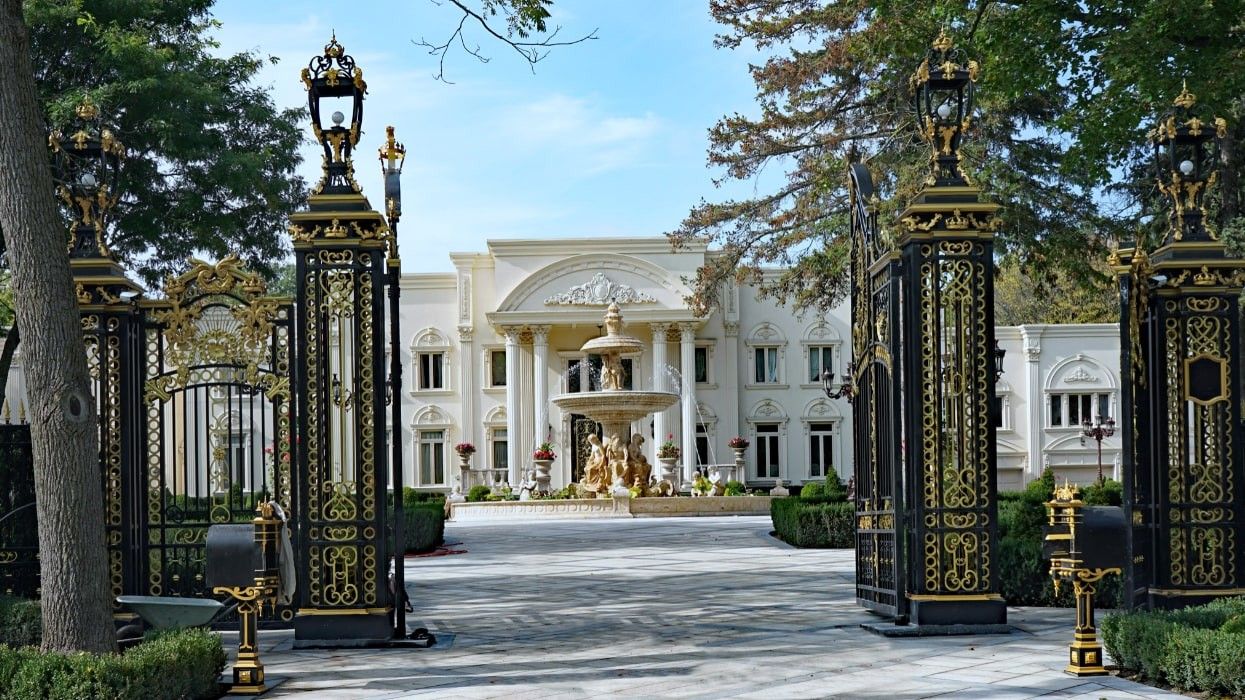Despite rising interest rates and economic uncertainty, buyers in Canada’s luxury real estate markets remained resilient over the summer months.
Luxury single-family home sales surged across the country’s four major markets but, amidst rising prices and carrying costs, buyers shied away from condo living. This, according to Sotheby’s International Realty Canada’s Top-Tier Real Estate: Fall 2023 State of Luxury Report.
"It’s been a very strange market ever since the start of COVID. We’ve had low inventory levels for quite some time, and that pent-up demand is what drove activity this summer," Don Kottick, President and CEO of Sotheby’s International Realty Canada, told STOREYS.
"But consumer demand is changing. The price gap between condos and single-family homes has narrowed. It’s value for money and buyers are going back to single-family. The desire for homeownership remains strong, right across the country."
Although luxury buyers are more resilient when it comes to rising interest rates than conventional buyers, they’re "not bulletproof," Kottick said. Amidst increasing geopolitical tensions and the rising cost of living, luxury sales ended the third quarter muted in comparison to the summer heat.
In the Greater Toronto Area, residential sales over $4M rose 32% annually between July 1 and August 31. Single-family homes accounted for the majority of summertime sales — activity increased 37% annually, while condo sales fell 32%. At the same time, residential sales over $1M jumped 10%.
Sales slowed slightly in September, with activity above the $4M mark rising 3% annually. As in the preceding months, single-family home sales led the growth, rising 25%. Just one condo over $4M was sold in the GTA in September. Overall, sales over $1M fell 4% year over year in September.
Despite initial fall activity pointing to a "steady" market in the months ahead, the report notes that luxury buyers in the GTA are “increasingly selective” and emboldened to negotiate should the price not be right.
"Buyers are not in any great hurry. They’re tending to extend their searches, and there seems to be more of a willingness to engage in detailed negotiations," Kottick said.
"We’ve seen that if they don’t like the terms that sellers are giving them they’ll walk away. So there’s a lot of discerning behaviour in terms of buying that’s happening right now, probably more pronounced than we’ve seen in the past."
In Vancouver, residential sales over $4M soared 96% annually between July 1 and August 31 — single-family home sales in the price point were up 145%, while condo sales fell 25%. Sales over $1M jumped 28% year over year, even as high prices, steep inflation, elevated mortgage rates, and a lack of supply continued to reshape the market.
As in Toronto, buyer hesitancy crept into Vancouver’s luxury market as the seasons changed. Residential sales over $4M fell 29% annually in September, while sales over $1M dropped 31%. Sotheby’s predicts that “cautious optimism” will prevail, though, with demand continuing to centre around the single-family segment for the remainder of 2023.
With strong economic performance, significant population growth, and consumer confidence boosting sales, Calgary “cemented its reputation as Canada’s powerhouse in luxury real estate” this summer.
Residential sales over $1M climbed 69% annually from July 1 to August 31, with single-family homes accounting for 88% of transactions. One property over $4M sold in the summer, on par with seasonal transaction levels in 2022 and 2021.
But unlike other markets, activity has yet to slow down. Sales over $1M more than doubled in September, rising 106% year over year. Single-family sales over the million-dollar mark jumped 105% annually, but condo sales, which increased 150% year over year in the summer, pulled back slightly.
The only thing standing in the way of further sales activity in Calgary is a notable shortfall in inventory, which has intensified buyer competition and spurred price escalation.
"There’s a lot of optimism in Calgary right now. As long as it remains one of the most affordable areas, it will still be attractive to buyers," Kottick remarked.
In comparison to the preceding markets, activity was relatively stable in Montreal as expectations between buyers and sellers diverged. There were nine sales over $4M between July 1 to August 31, compared to eight last summer. Residential sales over $1M rose 31% annually over the summer months.
Come September, residential sales over $1M edged up 4% annually; three properties over $4M changed hands, compared to two transactions in September 2022.
Despite the September slowdown, demand persists across Canada’s luxury real estate markets, particularly so as a rising population coincides with a “chronic” supply shortage.
"I think there’s cautious optimism across the board. We’re now north of 40 million people in Canada, that’s going to keep demand up," Kottick said. "Ultimately, buyer sentiment is continuing to evolve. We just have to wait and see what is going to transpire."





















